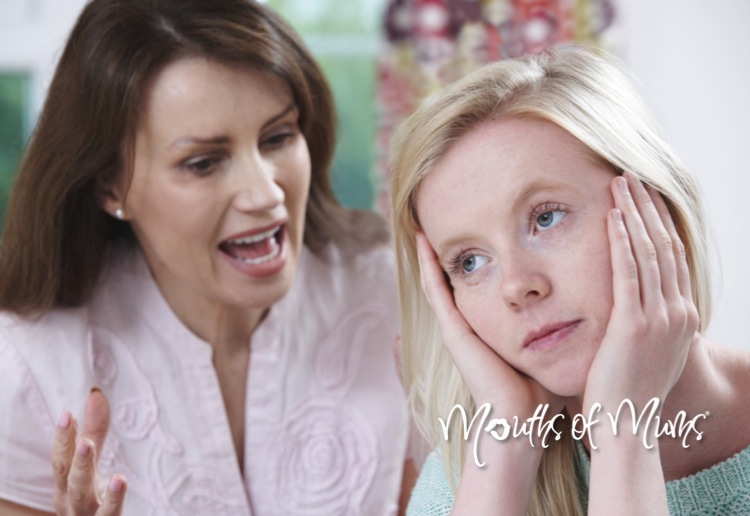Have you ever experienced ‘mother anger’? You are not alone.
Last week, a lovely young mother (let’s call her Trish) came to see me at my Clinic. She was fed up with her son’s aggression and wanted him to change. She spoke calmly about how her son seemed to get worked up about small issues, how he’d scream at her, how he found it hard to calm down and how much his anger was hurting her emotionally. I listened for a while and then asked her about how other family members handled their frustration and anger. This was when I saw Trish’s calm responses turn into raw distress. You see, her biggest fear was that actually he was becoming just like her – angry, overwhelmed, screaming, upset…. lost.
Trish ended up working with me for many weeks. I only saw her son once. I didn’t need to see him – it was Trish who needed to do most of the changing if her son was going to get the two things he really needed – a calm(ish) mother to sooth his emotional distress and a better role model for dealing with anger.
What did Trish’s treatment involve? It was certainly in-depth. It delved right into many parts of her history, her relationships, her health, her emotions and her cognitive processes. But in the absence of tailoring a therapy program to each individual, here’s my guide to techniques that help most mums better manage their anger (but remember – no perfect parenting is either required or desired by our little ones!).
Step One: Do a quick biology check.
The first step is to ensure that your lifestyle choices aren’t fuelling your aggression. Many aspects of modern living increase the chances of higher levels of cortisol (the stress hormone) which makes us more prone to many unhelpful behaviours including angry outbursts. So:
- Reduce the red frogs – in other words, cut out the sugar and processed carbohydrates wherever you can. These can lead to increased cortisol and heightened levels of physical arousal.
- Ditch the caffeine – I know you loooove your coffees – but believe me, it’s a one sided relationship – it only pretends to love you back. You may get quick boosts of energy, but overall it’s more likely to leave you high in cortisol and feeling anxious. Maybe just keep your first one of the morning, but otherwise look for decaffeinated varieties or switch to herbal tea (which interestingly is linked to lowering cortisol).
- Put on your walking shoes – yes, engaging in moderate exercise can assist in lowering cortisol. Intensive exercise can actually increase cortisol, but if you looooove your high power kick boxing class, don’t give it up – just make sure you balance it out with some yoga or beach walking too.
- Breathe – but not just any ol’ way. You need to slow it down and tune into making sure you’re focusing on the breath out. And you need to watch your breathing throughout the day. Aim for around a 5 second breath cycle (2 seconds in, 2 seconds out with a 1 second break). Set a timer to alert you to the hour, and each time it goes off, just check that you’re keeping your breath rate at the 5 second breath cycle rate. You’ll soon be spending your days much calmer than ever before!
- Get your shoulders out of your ears – in other words…. RELAX! If you’re spending your days with muscles as tight as a drum, chances are you’re not prepared to calmly dealing with anything that comes across your path – your body is more prepared to fight with people than to connect with them – including your children. There are many great ways to do this, including yoga, progressive muscle relaxation and hot baths! Find your way to relax then regularly check in with yourself throughout the day to see whether you can regain the relaxed muscle state to keep you calm.
- Sort out your sleep – many mental health issues can either be created or maintained simply by a lack of sleep. And if you’re sleep is in tricky territory you’re not alone, with up to 10% of Australians having chronic sleep problems. Learning to relax, increasing moderate exercise and reducing caffeine can help, but if you still have difficulties see your GP or a psychologist.
Step Two: Do a quick check of your “self-talk”.
Mothers often forget that how they talk to themselves (their “self-talk”) has a huge influence on how they behave. So if you want to be more angelic and less angry, try the following changes to your thinking:
- Ditch the put downs – if you find yourself saying things like “you’re a failure” or “what a crap mum you are” to yourself, take a moment to reflect on how these comments make you feel. If you’re not sure, imagine how someone else would feel if you said the same words to them. Angry or upset, right? So turn the aggression down the next time you don’t like what you’ve done. Make your feedback a little more gentle – e.g. “I didn’t handle that situation well, but I’m learning to be more calm and will handle it differently next time.”
- Take note of how you’re labelling your child – if you find yourself saying things like – “He’s just a little selfish brat” – no points for guessing that you’re unlikely to see your child as anything other than in a negative way. Which means you’re more likely to react aggressively. But that doesn’t mean you have to sugar coat everything either. Try something realistic – “Johnny is a great kid, but his behaviour can leave me feeling pretty overwhelmed.”
- Watch your negative future focus – if you find yourself saying things like – “I’m gonna kill him if he does that one more time” – it doesn’t take a genius to figure out you’re hardly preparing yourself for a calm response to your child’s behaviour. Be realistic. What do you want to do if little Johnny does that annoying behaviour one more time? It turns out that if we want to change our behaviour we actually need to tell ourselves what we want to do about our situations – e.g. “next time Johnny screams I’m going to stay calm and send him to his room if he doesn’t stop”.
Start with these strategies and see how you go. If you’re finding your aggression isn’t reducing, then it could be that there are more entrenched and more complex factors that need addressing to reduce your anger. So please, make sure you get help – talk to your GP about a referral to a psychologist or counsellor. You deserve a better life than being on an emotional rollercoaster and your family does too.
Do you find yourself getting angry a lot? How are you addressing it? Please share in the comments below.
Image courtesy of Shutterstock.com





















2:17 pm
12:58 pm
12:14 pm
12:03 pm
- «
- 1
- 2
Post a commentTo post a review/comment please join us or login so we can allocate your points.